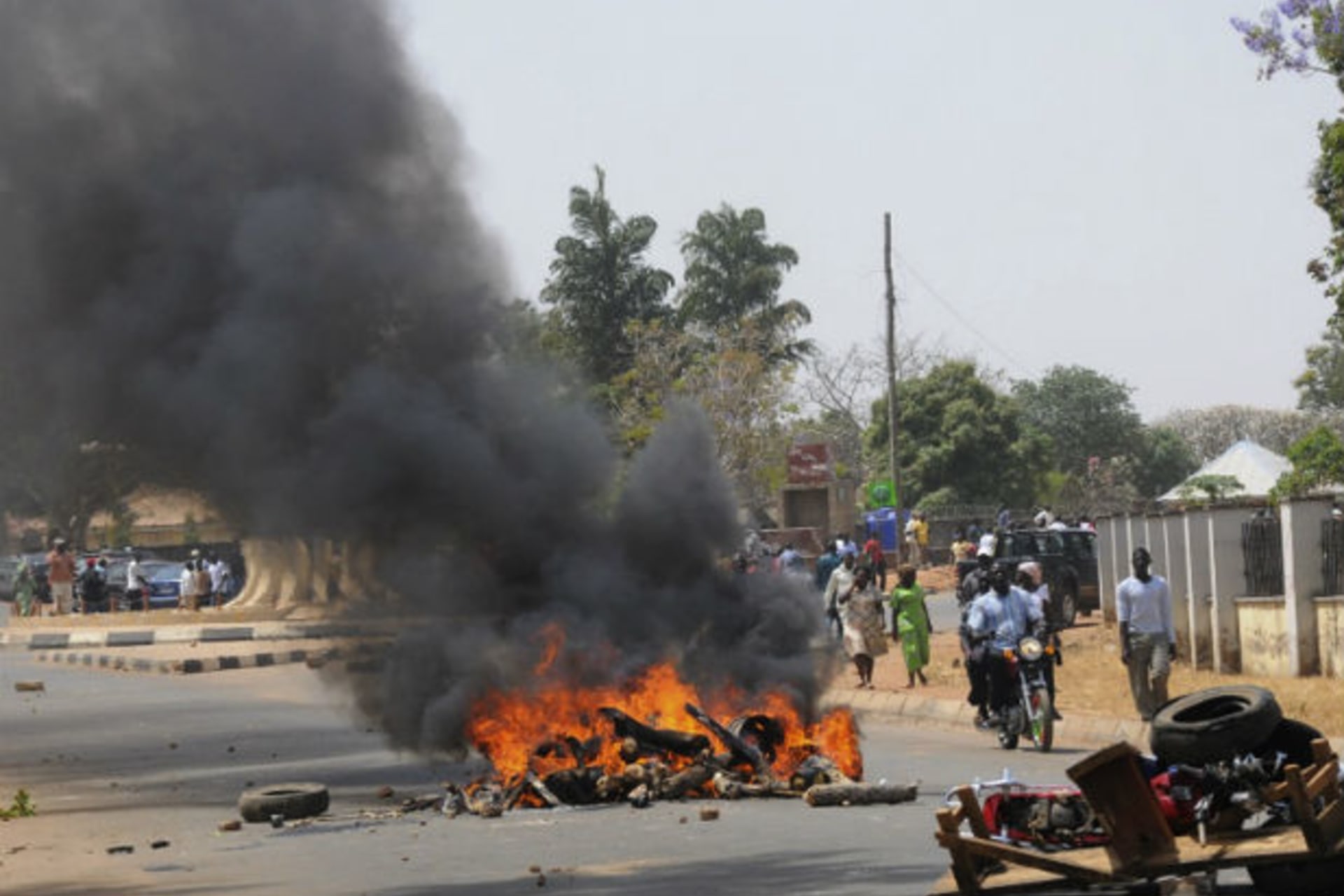A Bloody Easter in Nigeria

By experts and staff
- Published
By
- John CampbellRalph Bunche Senior Fellow for Africa Policy Studies
For Christians -- and at least half of Nigeria’s population is Christian -- Easter is the Queen of Feasts, one of the two highest profile holidays of the year. (The other is Christmas.) Last Christmas, there were bloody attacks on worshippers attributed to Boko Haram centered around Abuja. This Easter, there were similarly bloody attacks in Kaduna. Thus far, no group has claimed responsibility for them.
Press accounts say that at least thirty-eight were killed on Easter day by a car bomb detonated by a suicide bomber. There is reporting that the bomber’s goal was an Evangelical Church of West Africa (ECWA) congregation, but he detonated his explosives prematurely when he attracted the attention of the security services. In what may be a related incident, a bomb was detonated in the middle belt city of Jos, also on Easter day, but apparently with no casualties. The State Security Service and the army a few days earlier reported that it had captured sixty explosive devices in Gombe (in the same general region as Kaduna and Jos) and arrested five suspects.
At an Easter vigil on Saturday at a Catholic Church in Benue, twenty-two died when the church collapsed around them. However, the cause was heavy rain, not terrorism, according to official authorities as reported in the press.
With increasing Boko Haram attacks, there had been concern about violence over Easter. According to the press, both the British and U.S. governments had issued warnings to their citizens. However, at least one Nigerian press spokesman had predicated that “Easter will be peaceful for all.”
Kaduna is on the fault line where the predominately Christian south and the predominately Muslim north meet. Human rights organizations estimate that at least eight hundred were killed in its outskirts following the April 2011 elections. While victims were both Christian and Muslim, the latter seem to have predominated. Ever since, there has been a heavy military and police presence in the city.
Kaduna was founded by the British in 1913 and it became the capital of the old Northern Region in 1917. Its population approaches eight hundred thousand. It is now the capital of Kaduna state, but many northern politicians maintain residences there, making it politically more important than its size would indicate. Jos is also on a religious and ethnic fault line, and has long been the venue of vicious ethnic and religious strife.
Boko Haram is a highly diffuse movement, rather than a tight organization. Though no group claims responsibility for the Easter mayhem, it is plausible that some aspect of Boko Haram is responsible. In its early days, Boko Haram attacks were mostly on police stations and military facilities, and suicide bombing started less than a year ago. Now, however, churches and to a lesser extent schools are also targets. Boko Haram would appear to be changing even as it becomes more successful.